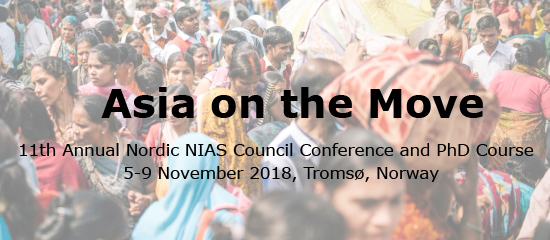Our doctoral students Karoliina Hurri and Sohvi Kangasluoma are spending this week in Norway, taking part in the “Asia on the Move” conference in Tromsø and a PhD workshop on-board Hurtigruten cruise ship sailing between Tromsø and Svolvær. The event is organised by the Nordic NIAS Council in collaboration with the Centre for Peace Studies, UiT – The Arctic University of Norway. The conference is held on 5th-7th of November and the workshop from 7th to 9th.
Asia – a region that contains nuclear states, the second and third largest economies in the world, the largest global population – is on the move!
The continent which has changed the most in the 21st century is Asia: be it Asia’s engagement with the Arctic region, presence in Africa, economic prominence, or geopolitical influence within and outside of the region, increased population movements in and outside Asia, increased risk of climate change, democratization and citizenship issues, nuclear proliferation and security threats to and from some of the Asian countries – all require in-depth analysis for good global governance.
For example, the rise of China in Central Asia has led to many speculations, including a ‘New Great Game’ with Russia and the United States. On the other hand, new moves from both parties on the Korean peninsula may see a ‘new hope’ for peace. Sideways, in the context of climate change and ‘arctic race’, new geo-ecopolitical, and geostrategic dynamics led to the growing interest of non-Arctic states in the affairs of the Arctic. Engagement of countries like China, Japan, Korea and India in the Arctic will significantly influence the evolving dynamics in that region.
Meanwhile, forced migration (e.g. Rohingya issues) and climate change induced displacement, corruption, violation of human rights and citizenship, crisis in Asian mega cities, and rising inequality have huge influence on ‘The Move’ and hence require much attention from policymakers and academics working on Asia.
At the PhD workshop, Sohvi presents a paper for NIAS PhD course – Theoretical background and operationalization of human security from a feminist perspective titled “A feminist approach: Impacts of oil and gas sector to human security in Arctic communities”, and Karoliina presents a paper for NIAS PhD course Research Design and Key Concepts “China’s Leadership Role in Climate Negotiations: A case of BASIC countries, BRICS group and the Arctic Council”.
Check conference website for more information on the event.

